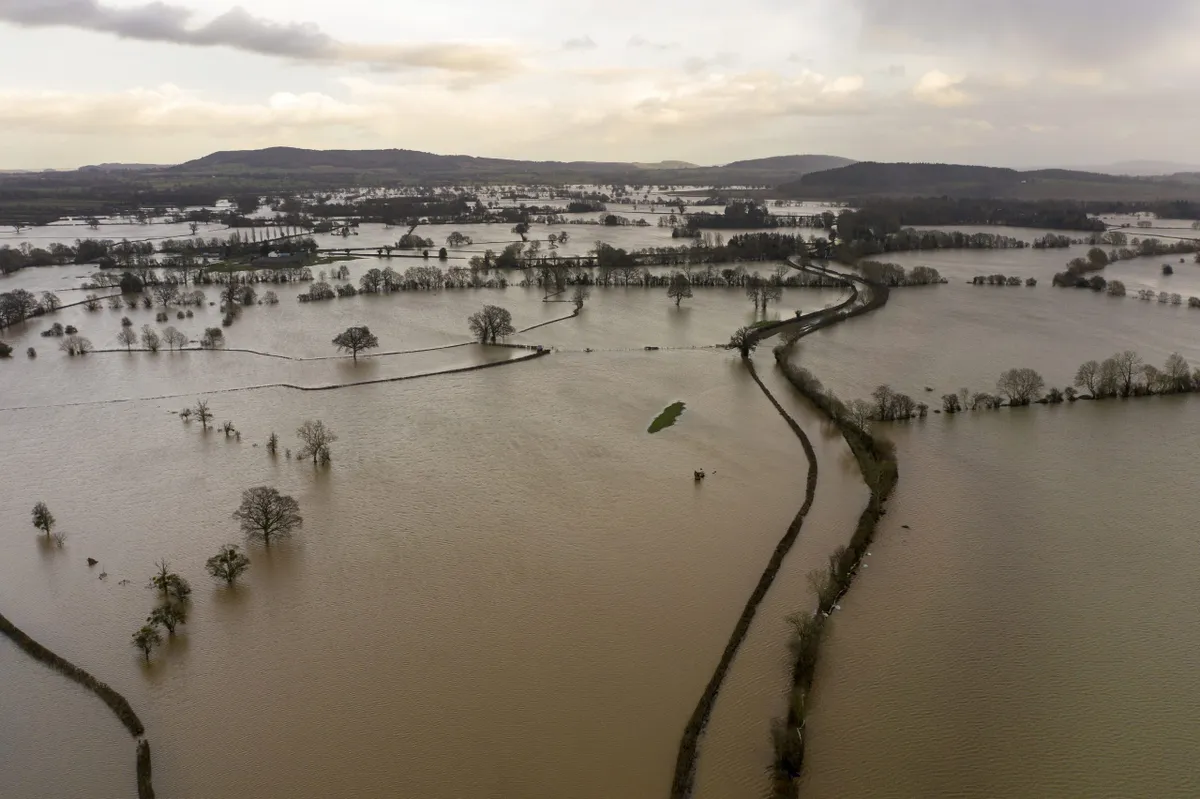Natural solutions are to become a formal part of policy to protect the UK from future flooding linked to climate change. The government has announced a £5.2bn plan in response to increasing concern about the impact of extreme weather on the countryside and rural communities. The funding also seeks to mitigate the impact of river flooding on cities.
Perhaps the most eye-catching detail of the funding is the intention to earmark £200m for ‘nature-based’ solutions, such as sustainable drainage and using natural flood plains to store water and protect wildlife in areas at risk of flooding. Measures will include tree planting and the creation of new habitats, slowing water flow, restoring peatlands to hold water and building hollows in the ground which can be used to store water to be used in times of drought.
A further £170 million will be used to speed up the building of 22 flood schemes across the country. Money will be targeted to protect an additional 330,000 homes from flooding by 2027 and includes changes to the fabric of properties through use of more flood resilient materials or raised electrical points. Drainage systems will be included in the building of new housing estates. Developers and local authorities have often been criticised for overseeing construction of houses on areas known to be at risk of flooding.

Farmers have said that the scheme must include adequate funding for them to protect their land from flooding and compensate them if farmland is used to absorb excess water The NFU says the funding must be joined up and take into account the extreme weather that climate change is bringing, in the form of drought as well as flooding. DEFRA says that farmers will be incentivised through farm subsidies.
Meet the local vicar who saved the town of Whaley Bridge from a bursting dam
In episode four of the podcast, we head to the town of Whaley Bridge in Derbyshire to hear from the local vicar who first spotted the danger of the overloaded reservoir and raised the alarm – saving the community from tragedy.
There has been an increasing trend in flooding over the last four or five decades in parts of northern Britain. Since 1998, the UK has seen six of the ten wettest years on record. Summer and autumn 2019 were exceptionally wet and a month’s worth of rain fell in only a few hours in parts of the Midlands and Yorkshire.
The link to climate change is that a warmer atmosphere holds more moisture. Winters are becoming warmer and wetter, which means the ground is often saturated and unable to absorb sudden bursts of extreme rain. The Environment Agency has said that the government must plan for more extreme weather, including summer temperatures up to 7.4C hotter and 59% more rainfall by 2050.
